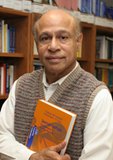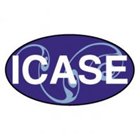CFDConference >
index
First Announcement:
NIA CFD Conference
Future Directions in CFD Research, A Modeling and Simulation Conference
August 6-8, 2012
Embassy Suites Hampton Roads - Hotel, Spa & Convention Center
1700 Coliseum Drive, Hampton, Virginia
Conference:
Computational fluid
dynamics (CFD) has had a profound impact on the aircraft design process
in the past four decades and is partially responsible for reduced wind
tunnel testing during the same period. The advancement of fluid dynamics
during this time period would not be possible without the rapid
increase of the computing power. The developments of sophisticated
numerical schemes that fully utilize such power have to accurately
represent the multiple scales in the highly nonlinear fluid dynamic
problems of scientific and engineering relevance. This conference is
being sponsored by the Revolutionary Computational Aerosciences (RCA)
initiative within Subsonic Fixed Wing Project of NASA’s Fundamental
Aeronautics Program with the aim of bringing leading experts together to
review the progress, identify the gaps, and help chart the future
directions.
Looking
to the future, the time is particularly appropriate for such an event,
as a number of Exa scale computers are already in the planning stages.
Many significant issues will be highlighted and inspected at the
conference. For numerical analysts, what are the future
requirements for computational methods? And for theorists and
practitioners of CFD, what can we expect from numerical simulations?
What will be the need for physical/turbulence model development? How can
turbulent flow separation be predicted more accurately, while
increasing the speed of computations by several orders of magnitude? The
program will consist of several sessions based on distinctive themes
including numerics, simulations and modeling. It is our hope that this
forum will provide a way to report progress, discuss current status, and
identify the key challenges, as well as offer guidance on the future
directions.
Looking
to the past, this is also a good juncture to review and celebrate major
achievements in the field during several decades. One of the
major incubators to foster research in the field was the Institute for
Computer Applications in Science and Engineering (ICASE) at NASA Langley
Research Center, which was founded by extolling the promise of “super
computers” and thrived on the interface between fluid dynamics and
numerical analysis. It is expected that a number of ICASE staff members
will attend the conference to look back at ICASE’s contributions and
honor one of its previous Directors, Professor Yousuff Hussaini who is
currently at Florida State University.


The conference organization is chaired by Mujeeb Malik of NASA
Langley Research Center. Conference logistics are being handled by the
National Institute of Aerospace. Florida State University is a
co-sponsor of this conference.
Venue:
The conference will be at the Embassy Suites Hampton Roads
- Hotel, Spa & Convention Center in Hampton Virginia. A block of
rooms has been reserved at the discounted conference rate $89 plus tax
per night for a single room and $99 for a double room. The rooms will be
held until July 16, 2012. Rooms may be reserved by calling the hotel
directly at 1-757-827-8200 or toll-free at 1-800-EMBASSY and
asking for the group block “NIA CFD Conference”, or by accessing the
booking link: Room Reservation – NIA CFD Conference


The nearest airport to the hotel is the Newport News/ Williamsburg
International Airport (PHF) which is 10 miles from the hotel with an
approximate drive time of 15 minutes. Also nearby is Norfolk
International Airport (ORF) which is 18 miles from the hotel with a
drive time of 30 minutes. To reach the hotel from either
airport, exit the airport and take I-64 (Eastbound from PHF or
Westbound from ORF) to Exit 263B to Mercury Boulevard, turn right at the
first traffic light onto Coliseum Drive. Taxis and Car Rentals are
available from either airport.
Registration:
In order to accommodate a broadly distinguished group of attendees
within our limited conference space, the conference has been set up as
by invitation only at this time. Please use the links below to register
in the Invited Attendees category. Other interested attendees are welcome to register in the Interested Attendees
category and they will be informed of their approved confirmation by
July 3, 2012, if space is available. If you have any question about the
registration procedure, please contact the conference chair, Mujeeb Malik. The will be no registration fee for the conference.
Click here to register for the conference.
Program Committee:
- Mujeeb Malik, NASA Langley Research Center, Chair
- Ye Zhou, Lawrence Livermore National Lab, Co-chair
- Mark Carpenter, NASA Langley Research Center
- Boris Diskin, National Institute of Aerospace
- David Keyes, Columbia University/ KAUST
- David Kopriva, Florida State University
- Joe Morrison, NASA Langley Research Center
- Eric Nielsen, NASA Langley Research Center
- Chris Rumsey, NASA Langley Research Center
- Sutanu Sarkar, University of California San Diego
Agenda: Click here
Contacts:
Presentations
Session 1
"Missing Mathematics for Extreme-scale CFD" David Keyes
"NASA Fundamental Aeronautics Program" Jay Dryer
"Future Directions in CFD Research: A Modeling and Simulation Conference" Mark Anderson
"Computational Fluid Dynamics: Past, Present and Future" Antony Jameson
Session 2
"On the Importance of Adaptivity for Higher-order Discretizations in Aerospace Applications" David Darmofal
"Development of Spectral Element Methods for Compressible Flow Problems" David Kopriva
"Exascale Opportunities for Computational Aerodynamics" Dimitri Mavriplis
Session 3
"Software Tools for Parallel Coupled Simulations" Alan Sussman
"A Different Kind of Flow Analysis" David Nicol
"Science Clouds and CFD" Geoffrey Fox
"Tools Techniques and Methods for Integrative Data Analytics" Joel Saltz
Session 4
"Status of Turbulence Modeling for High-Speed Propulsion Flow Problems" N. J. Georgiadis
"Reflections on RANS* Modeling" Philippe Spalart
Session 5
"High-Fidelity Numerical Simulations of Multiphysics Turbulent Flows in Complex Geometries" Parviz Moin
"Filtered Density Function (for LES) and the Potentials for its Quantum Computation" Peyman Givi
"Vortex Wave Interaction: Rolls, Waves, Streaks and the Emergence of Spots" Philip Hall
"The Lattice-Boltzmann Method - An alternative for unsteady flow simulations" Swen Noelting
Session 6
"Petascale Computing and Similarity Scaling in Turbulence" P. K. Yeung
"Turbulence in the Environment" Sutanu Sarkar
"Perspectives in modeling wall effects in the RANS approach" Svetlana V. Poroseva
Session 7
"Debunking the Residuals Myth: Using residuals to create accurate discretization schemes" Doru Caraeni
"Hyperbolize it." Hiro Nishikawa
"The Things We Does Know" Phil Roe
"What is a flux?" Phil Roe
"How to Capture a Shock Wave?" Daniel Zaide
Session 8
"Complementary but Changing Roles of Computational and Experimental MODSIM" Ajay Kumar
"Rapid Convergence using Implicit Smoothing with Runge-Kutta Schemes for Navier-Stokes" Eli Turkel
"Prospects for High-Speed Flow Simulations" Graham Candler
"Spurious Behavior of Shock-Capturing Methods (Problems Containing Stiff Source Terms & Discontinuities)" H.C. Yee
Session 9
"Epistemic Issues Concerning Boundary & Initial Conditions in MODSIM" Dennis Bushnell
"Some Challenging Problems in (Active) Flow and Noise Control A (Limited) Experimental Perspective" F. S. Alvi
"On time domain methods for Computational Aeroacoustics" Fang Hu
"Digital-X: DLR's Way Towards the Virtual Aircraft" Norbert Kroll
Session 10
"Future Direction in Turbulence Modeling:" Oleg Vasilyev
"Recent Advances in Compressible Multiphase Flows Explosive Dispersal of Particles" S. Balachandar
"Scales and the critical Reynolds numbers of the minimum state turbulent flows" Ye Zhou
Session 11
"Influence of high temperature gradient on turbulence spectra" Adrien Toutant
"Quantification of Uncertainty from high-dimensional experimental data" Lionel Mathelin
"Transition and turbulence in MHD at very strong magnetic fields" Oleg Zikanov
"Particle-Laden Flows: Some Conundrums" Peter Duck
"Suggestions for Making Useful the Uncertainty Quantification Results from CFD Applications" Thomas Zang